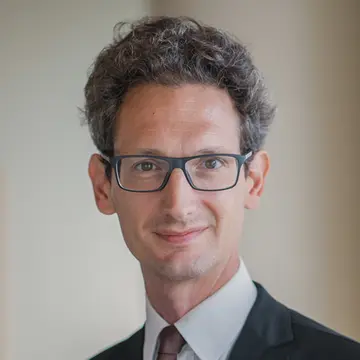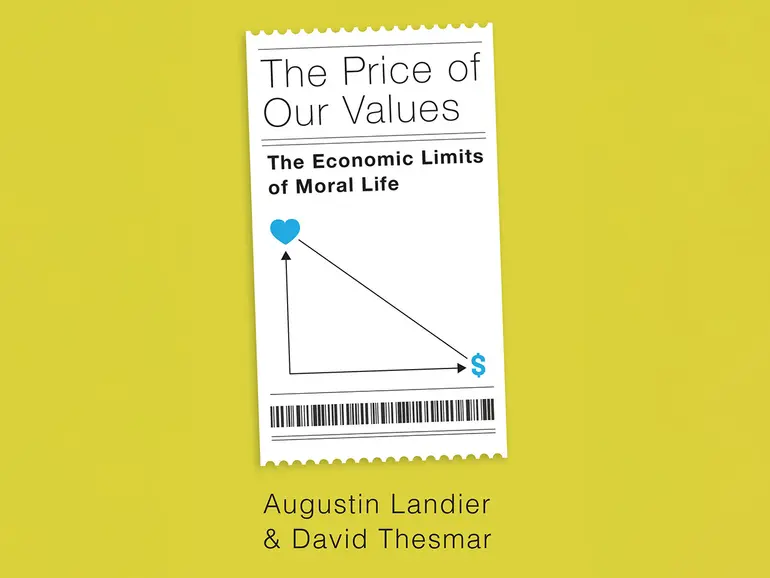New MIT Sloan courses focus on deep learning, gen AI, and fintech
Additions to the MIT Sloan 2025 – 2026 course list include Intensive Hands-On Deep Learning, AI and Money, and The Arrhythmia of Finance.

Faculty
David Thesmar is the Franco Modigliani Professor of Financial Economics and a Professor of Finance at the MIT Sloan School of Management.
He is an expert in corporate finance, financial intermediation, entrepreneurship, and behavioral economics. Recently, he has studied the impact of financing constraints on the real economy. Thesmar also investigates risk management and systemic risk in banking. He has also researched firm organization and non-rational decision making on corporate strategies. His work makes systematic use of large datasets but emphasizes a parsimonious modelling approach to address economic questions.
A native of France, Thesmar has been involved in policy advising both at the French and European level. He was a member of the council of economic advisors to the French prime minister from 2007 to 2013, and is currently a scientific adviser to the European Systemic Risk Board. An active participant in the public debate, Thesmar is the author of several books, and a regular columnist for the French daily newspaper Les Echos. He has also held numerous consulting positions in the private sector, with a focus on big data related topics.
Thesmar holds a BA in physics and economics from École Polytechnique, and a PhD from the Paris School of Economics.
Current Research Focus: Thesmar's research is in corporate finance. One first area is valuation, with an emphasis on forecasting rules and valuation methods. This line of research employs survey data as well as laboratory experiments in order to shed light on the efficiency of the capital budgeting process. Another related area is corporate governance: He shows that ESG investment does not contradict value creation. A third line of research argues that finance benefits the economy by allocating capital to the right projects: He finds that this contribution is very large.
Featured Publication
"CAPM-Based Company (Mis)valuations."Dessaint, Olivier, Jacques Olivier, Clemens A. Otto and David Thesmar. The Review of Financial Studies Vol. 34, No. 1 (2021): 1-66. Download Paper.
Featured Publication
"Housing Collateral and Entrepreneurship."Schmalz, Martin C., David Alexandre Sraer and David Thesmar. Journal of Finance Vol. 72, No. 1 (2017): 99-132. Download Paper.
Nimier-David, Elio, David Alexandre Sraer, and David Thesmar. The Quarterly Journal of Economics. Forthcoming. SSRN Preprint.
Thesmar, David and Emil Verner, Working Paper. September 2025.
Paine, Fiona, Antoinette Schoar, and David Thesmar, MIT Sloan Working Paper 7330-25. Cambridge, MA: MIT Sloan School of Management, July 2025.
de Silva, Tim, Eugene Larsen-Hallock, Adam Rej, and David Thesmar, MIT Sloan Working Paper 6883-22. Cambridge, MA: MIT Sloan School of Management, April 2025.

Additions to the MIT Sloan 2025 – 2026 course list include Intensive Hands-On Deep Learning, AI and Money, and The Arrhythmia of Finance.

A new book from an MIT Sloan professor explores how we balance doing what’s right with doing what works — and what we’re really willing to give up for our values.
Professor David Thesmar and co-authors wrote: "Investors and executives have often floated the idea that companies can 'do well by doing good.' In a new experimental paper, we show that this story, sometimes referred to as 'instrumental stakeholderism,' is incomplete: stakeholders care not just about what firms do, but why they do it."
Professor David Thesmar and co-authors wrote: "In today's interconnected world, leaders frequently encounter dilemmas where moral convictions intersect with economic realities. Our book, 'The Price of Our Values: The Economic Limits of Moral Life' argues that our moral decisions cannot be dissociated from economic considerations."
"The economy and social projects do not exist separately from one another."
"Responsible asset management has developed considerably. However, the exact nature of responsible investors' preferences remains elusive."